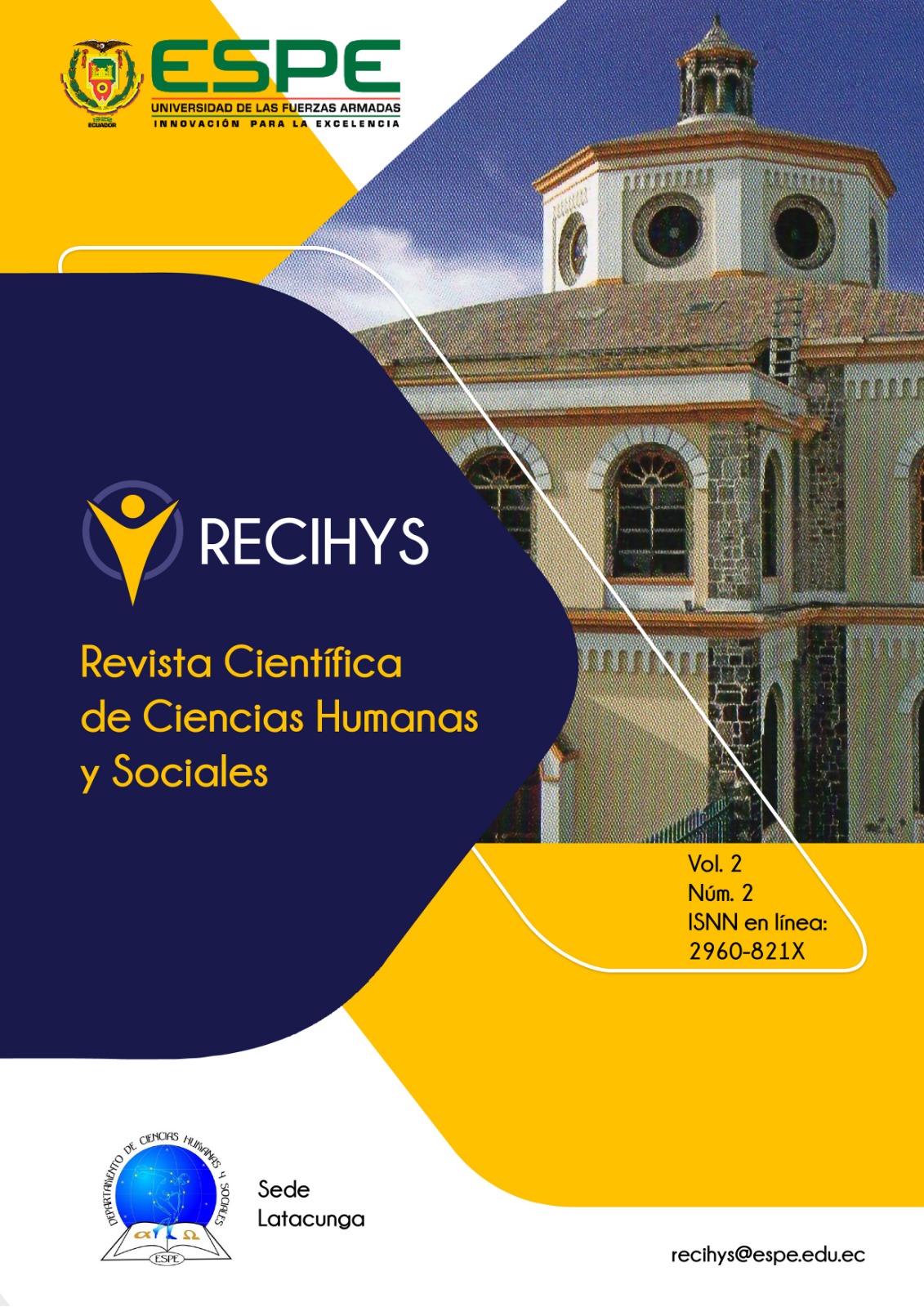The Teaching of History and the Constructions of Realities
Main Article Content
Abstract
History, a social science, has been narrated over time by a hegemonic group in power. They have constructed it based on group interests. The intentionality of their manipulation combined with various forms of power: political, economic, cultural, religious, etc. This construction of linear realities has been imposed on the poor and subjugated classes as the only model of knowledge about past events. This perspective of study serves as a tool for indoctrination and constructs a social-individual imaginary, but it does not educate, guide, or build an idea of a nation, society, and social being. Consequently, this subject has fallen into tedium and neglect among students, who did not see in it a space for social reflection and self-reflection. All these issues, detected through various instruments, generated results that invite reflection and a change in the treatment of the subject. The linear study, which considers only one cause and one effect, must be broken and instead approached as a dialectical phenomenon that allows for diverse and enriching analysis. And to understand this problem we will apply the qualitative, hermeneutical approach, that is, a descriptive methodology. Therefore, this article is guided by the objective: Analyze the impact of history teaching designed by temporality schemes on the perceptions of students' daily reality, especially in relation to women, Afro-Ecuadorians, indigenous people and peasants.
Downloads
Article Details

This work is licensed under a Creative Commons Attribution 4.0 International License.
Authors who publish in this journal agree to the following terms: Authors retain the copyright and guarantee the journal the right to be the first publication of the work, as well as, licensed under a Creative Commons Attribution License that allows others share the work with an acknowledgment of the authorship of the work and the initial publication in this journal. Authors may separately establish additional agreements for the non-exclusive distribution of the version of the work published in the journal (for example, placing it in an institutional repository or publishing it in a book), with acknowledgment of its initial publication in this journal. Authors are allowed and encouraged to disseminate their work electronically (for example, in institutional repositories or on their own website) before and during the submission process, as it may lead to productive exchanges as well as further citation earliest and oldest of published works.
How to Cite
References
Ana, M. (2013). El tiempo histórico y su enseñanza , un desafío aún vigente . 0–27.
Benjamin, W. (1940). Tesis sobre la historia y otros conceptos (traducción de Bolívar Echeverría). https://www.marcialpons.es/libros/tesis-sobre-la-historia-y-otros-fragmentos/9789687943954/%0Ahttp://books.google.com.br/books?id=ERaVMwEACAAJ
Cerri, L. F. (2009). Esquizohistoria: la Historia que se enseña en la escuela, la que preocupa a los historiadores y una renovación posible de la historia escolar. Revista Brasileira de História, 29(57), 237–240. https://doi.org/10.1590/s0102-01882009000100014
Devoto, F. J. (2007). Itinerarios Y Problemas.
Eduardo Fonseca Largo, C. (2023). Enseñar Historia desde el eurocentrismo y la construcción de identidades. Identidad Bolivariana, 7.
Eliade, M. (1907). Mircea Eliade esoterico. 39722166–39722166.
Engles, M. y. (1948). Manifiesto Comunista.
Freire, P. (n.d.). Pedagogía del oprimido.
Gramsci, A. (1975). Los intelectuales y la organización de la cultura. 103.
Hartog, F. (2008). 8b Creer en la educacion. i. http://encore.fama.us.es/iii/encore/record/C__Rb2600742__Screer en la educacion__Orightresult__U__X7?lang=spi&suite=cobalt
Hegel. (1838). Lecciones filosofia de la Historia Universal.
Jaspers, K. (1980). Origen y Meta la Historia.
Mesa, C. (1996). Ciro Mesa. 1–2.
Reaudad, L. A., & Vida, D. E. L. A. (1963). I . Los fundamentos del cotidiana. 1, 36–46.
Ricoeur, P. (2004). La memoria, la historia y el olvido. In Memoria histórica (p. 102). https://www.academia.edu/29110545/Paul_Ricoeur_La_memoria_la_historia_el_olvido
Santos., E. del S. of the S. B. de S. (2015). Redalyc.Epistemologías del Sur/Epistemologies of the South. Boaventura de Sousa Santos. (Boulder, Co., Paradigm Publishers, 2014). Boaventura de Sousa Santos y Maria Paula Meneses (coords.). (Madrid, Akal, 2014).
Spengler, O. (1976). La decadencia de Occidente : Bosquejo de una morfología de la historia universal. Historia y Filosofía de La Ciencia. Serie Mayor, I, II, v.
Todrov, T. (2013). Los usos de la memoria Colección Signos de la memoria: Serie ideas. 53.
Watzlawick, P. (1994). La Realidad Inventada (p. 252).
Zemelman, H. (n.d.). Pensar Teórico y Pensar Epistémico: Los retos de las Ciencias Sociales Latinoamericanas. Instituto Pensamiento Y Cultura En America A. C. “Enseñar A Pensar” Pensar.

